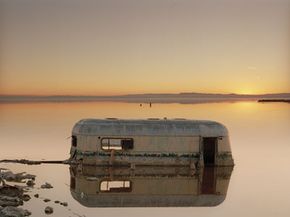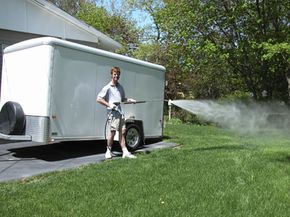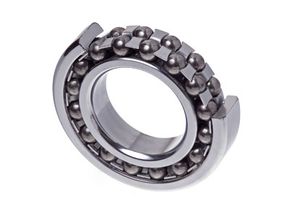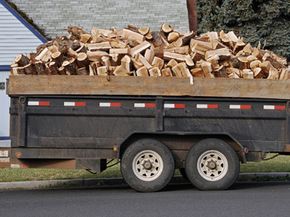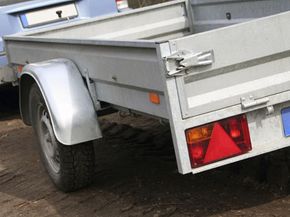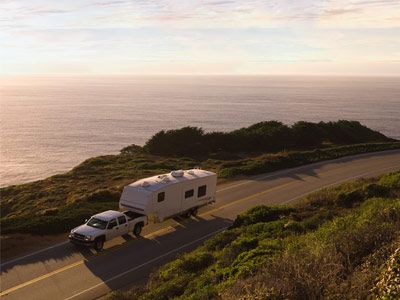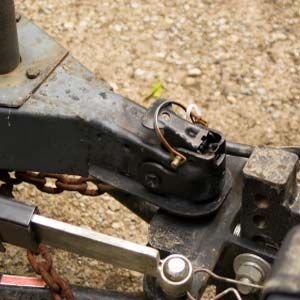Have you ever driven down a dark highway and passed another vehicle that didn't have its lights on? Chances are, you thought the other driver was a jerk, and you were right. It's a bad idea across the board to drive with your lights off or out of order. This is true for cars and trucks, as well as trailers.
Keeping your trailer properly maintained entails keeping your trailer's lights in proper working order. This is especially important, as most states require trailers have functioning brake and tail lights, as well as turn signals and license plate lights. The wiring for all of these lights should be placed together as part of your trailer's lighting system. In most cases, all wires converge at a central plug that connects to a wiring socket powered by your coach vehicle. When maintaining you trailer, take some time to follow the wires on both your trailer and your coach vehicle to ensure the wiring insulation is in good shape. Keep an eye out for corroded, worn or cracked spots. If you come across any weak points in the wiring, wrap it several times with electrical tape to insulate it.
While your coach vehicle's engine is turned off (and your lights in the "off" position for good measure), you must clean off your electrical connectors. Get rid of any road grime or other type of build-up. Once clean, dab on a little bit of dielectric waterproof grease -- this type won't conduct electricity and keeps moisture out of your electrical connections. You can also dab this type of grease around light bulb sockets and other places where moisture can get into your electrical system.
Now that you've taken steps to protect against an electrical failure out on the road, your lighting system should theoretically work. Theory's all well and good, but the road calls for you to ensure the lights are working in practice. This can be a bit tricky with just one person, since it requires one person to turn on the lights and one to visually confirm they're functioning properly. Some lights, like the turn signal, can be left on while you wander to the back of the trailer to make sure it's functioning. Others, like brake lights, are a little trickier. It's a good idea to grab a buddy, family member or neighbor for a few minutes to help you; the job will go by more quickly and easily than if you try it alone.
Test each of the lights in the system, one at a time. Start with the tail lights and license plate lights. Next, test the turn signals, and finally the brake lights. Ask your helper to confirm each is working before moving on to the next light. Replace any bulbs that may have burned out and address any larger electrical problems before taking your trailer out on the road.
Congratulations! Your trailer is back in ship shape and ready for action, with just a little effort and a few dollars on your part. It's time to hit the road.
For more information on towing and other related topics, visit the next page.
